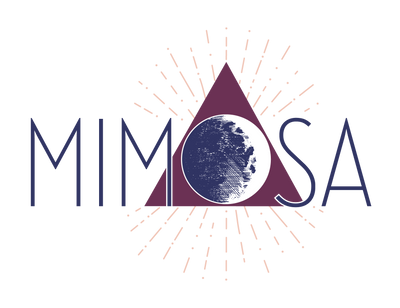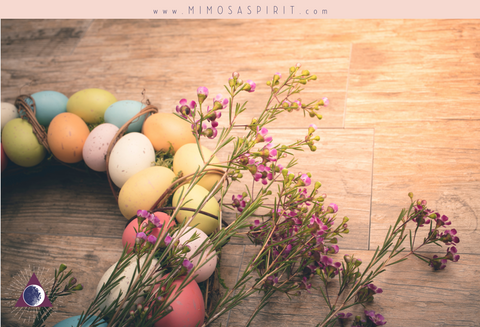
What to Do When You Draw a Difficult Tarot Card
by Mari Powers
I received an interesting set of questions from a client about two Tarot Cards that led me to think about a couple other cards as well. I was asked about the Major Arcana, (Life Passage cards), #13 Death and #16 The Tower. These cards in turn made me think of the Nine and Ten of Swords. Here's the question that got me to thinking:
I've been drawing cards daily (from the Paulina Tarot) and I drew The Tower yesterday. It put me in a tailspin and I had a tough day. A friend also did a layout and in the position of Relationships drew the Tower card. She is interpreting that as having to do with our relationship and that maybe it's time to let go. Any thoughts? When cards come up such as the Death card or The Tower card how can I interpret these cards without feeling a sense of doom?

Major Arcana: The Tower
Let’s take one card at a time. The first card mentioned is #16, the Tower. It has various names in different decks, and yet the similarities are greater than the differences. I like to let people know that it was poet W. B. Yeats’ favorite card. It is a difficult transition card, yet it is lightning quick. The repercussions are tremendous – however, we can move through the changes it brings very quickly and learn a lot in these types of life passages.
The most progressive of the decks I use adds the words Self Awakening to this card. Yeats and I both think of this card as sudden illumination and destruction ordained by the “Gods.” I often describe it as the “no shame, no blame" card. A force beyond human control strikes at the walls we have built up around ourselves and brings them tumbling down. These walls are of our own construct, and what once may have kept us safe now has become a prison. An outside powerful force strikes and our only choice is to take a leap of faith seeking our safety and freedom. It is like abandoning a sinking ship before it goes down. We ought to seek freedom from the crumbling stones of our own making.
Most important of all, it is followed by the 17th Life Passage Card, the Star. This is the card of hope and faith, of embracing magical thinking, of wishing upon a star and believing it will come true. (It is that, and so much more!)
When you get the Tower in a reading, you should first look at its placement in the spread. If it is your card for the day, it is only for that day, perhaps just for that moment or part of a day. Ask yourself:
- What barriers are coming down currently, or need to come down?
- From what should I set myself free?
- What have I been using as a survival mechanism or safe haven that is no longer for my highest good?

Major Arcana: Death
Next I would like to share my thoughts on card #13, Death. I have seen this card portrayed as Transition, Metamorphosis, the Phoenix, the Journey, Banshee Crone, Rebirth and Les Mortes (Death and Transformation). The Death card is all of these. I have never gotten the Death card in a reading that related to an actual physical death, unless it was about a relative or friend who had already passed. The endings and new beginnings card has most often been about a relationship, a job, a move, or a change in point of view. It could also be about a shamanic journey or to alert a person of messages from the Mighty Dead.
Death may signify a longer process than the Tower, yet it is an end and a new beginning always. It is informative to think of the card’s placement in the Fool’s Journey, our lives. The Death card is cradled between The Hanged One and Temperance. The Hanged One is the perceptual flip card, and represents major visionary change. Temperance is the patience to transform Self – represented by the alchemical conversion of Lead into Gold.
The Death card, between the two, is the closing of one door to open another. In the simplest of terms Death represents cleaning out your closet before you can buy new clothes! In a more complex tone, it is the transformation of the tadpole into the frog, the caterpillar into the butterfly, and the shedding of a snake’s skin so new growth can occur.

The Nine of Swords
In addressing these questions, I also thought of the Nine and Ten of Swords as difficult or challenging cards. Swords are generally the most challenging of all four Tarot suits. Of course, the meaning of these cards in a reading depends on the layout and placement – if they are in the past, that is a good thing.
Swords are usually representative of the element of Air. Air relates to the mind, thinking, perception and communication. Whatever tool you choose to associate with Air is in the place of the East, of new beginnings. I always say "If you have not changed your mind lately, you may not have one." It is the mind that most often confuses us and can lead us astray. There are also some wonderful exceptions to this norm. I think of the Nine of Swords as the “get out now" card: Stop thinking like that, or you will face a very difficult closure.
The Ten of Swords
The Ten of Swords is that difficult closure. I often call this the “game over" card. A person has followed the wrong train of thought and has lost the battle. Tens are always a closure. And though they all signal a new beginning, some closures are more difficult than others.
This is a tough one, and yet there is a sense of relief – the "hamster wheel" brain can finally come to a stop. We must accept the fact that thinking the same way over and over and finding no answers or peace is one definition of insanity. Now we are free. It is time to feel the relief associated with new beginnings, to let go and change our minds.
I owe much appreciation to the person who posed these initial questions to me. It got me thinking, and writing! I look forward to sharing other insights with you.





0 comments